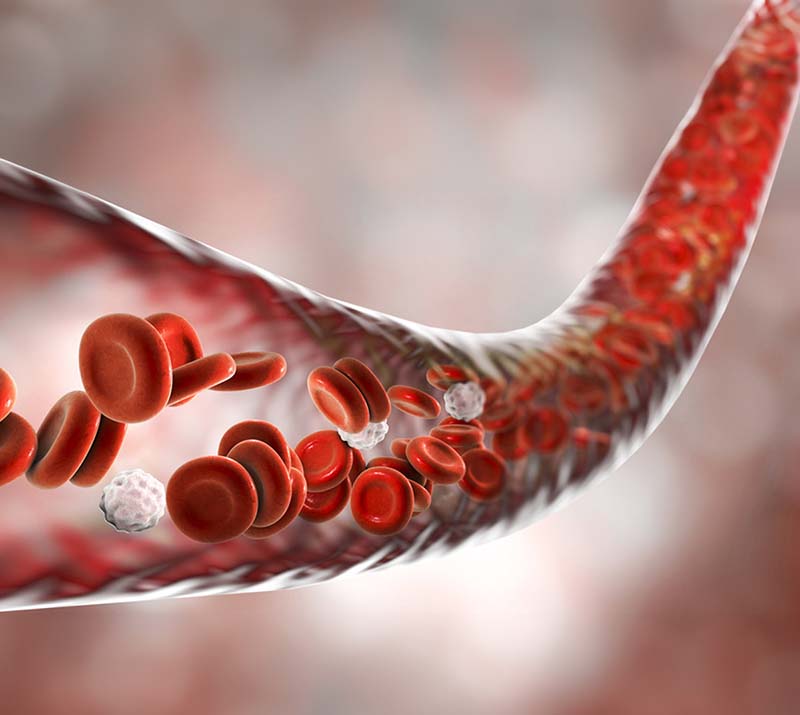Oysters have long held the reputation of being a romantic delicacy, but their potential for aiding weight loss remains a lesser-known secret. This brings us to the question: Are Oysters Good for Weight Loss? Beyond their association with candlelit dinners, these ocean gems harbor surprising benefits for those on a journey to shed pounds.
In this blog, we will unveil the hidden potential of oysters as a superfood for weight loss. We’ll examine the science behind their weight loss properties and provide essential insights to consider before incorporating them into your diet. Prepare to discover oysters in a fresh and enlightening perspective, one that might just reshape your approach to staying fit and healthy.
Read more
- Do Almonds Help You Lose Weight? Additional Health Benefits.
- Is White Fish Good for Weight Loss? Diet Insights.
- Can Avocado Help You Lose Weight? Nutritional Information.
Are Oysters Good for Weight Loss?
Absolutely, oysters can play a beneficial role in your weight loss journey. They offer a double whammy of advantages for those looking to shed pounds. Here’s why:
- Low in Calories: Oysters are inherently low in calories. A typical serving of six medium-sized oysters contains around 43 calories. This low-calorie content means you can enjoy them without worrying too much about exceeding your daily calorie allowance.
- Rich in Protein: Oysters are a protein powerhouse. Protein is your ally in weight loss because it helps you feel full and satisfied for longer periods. When you’re less hungry, you’re less likely to snack on high-calorie treats.
- Oysters are an excellent source of lean protein, making them an ideal choice for weight-conscious individuals.
- Omega-3 Fatty Acids: Oysters are also packed with omega-3 fatty acids. These healthy fats not only promote heart health but can also aid in weight loss. Omega-3s are known for their anti-inflammatory properties, and some research suggests they may contribute to improved weight management.

Nutritional Profile of Oysters
Certainly, oysters are a nutritional powerhouse. Let’s break down the impressive nutritional profile of 100 grams of wild eastern oysters, according to the USDA:
| Nutrient | Amount |
| Calories | 51 calories |
| Protein | 5.71 grams |
| Fats | 1.71 grams |
| Carbohydrates | 2.72 grams |
| Niacin (Vitamin B3) | 7% RDI |
| Vitamin B12 | 364% RDI |
| Iron | 26% RDI |
| Magnesium | 4% RDI |
| Phosphorus | 8% RDI |
| Zinc | 354% RDI |
| Copper | 317% RDI |
| Manganese | 13% RDI |
| Selenium | 36% RDI |
*RDI: Recommended Daily Intake
Here’s a closer look at some key nutrients:
- Vitamin B12: Oysters are a standout source of vitamin B12, which is crucial for nerve function, red blood cell production, and overall energy metabolism.
- Zinc: These mollusks are a zinc treasure trove. Zinc is essential for immune function, wound healing, and DNA synthesis.
- Copper: Copper, often overlooked but vital, supports the formation of red blood cells and keeps your bones and nerves healthy.
- Iron: Oysters provide a significant dose of iron, which is essential for carrying oxygen in your blood and preventing anemia.
- Omega-3 Fatty Acids: While not explicitly mentioned in the list, oysters are a great source of heart-healthy omega-3 fatty acids, which have anti-inflammatory properties and contribute to overall well-being.
Other Health Benefits of Oysters
Oysters offer an array of health benefits beyond what meets the eye. Let’s dive into some lesser-known advantages of including these shellfish in your diet:
Nurtures Healthy Bones
Oysters are rich in essential minerals such as calcium, phosphorus, zinc, iron, copper, and selenium. These minerals play a crucial role in enhancing bone mineral density and durability, reducing the risk of conditions like osteoporosis. A 2019 study found that oyster shell-fortified food products could prevent and treat osteoporosis, making them a valuable addition to your diet.

Aphrodisiac Qualities
While Giacomo Casanova may have exaggerated, there’s some truth to oysters’ reputation as an aphrodisiac. Research suggests that oysters can boost sexual performance and libido, thanks to their high zinc content. Zinc is associated with improved sexual function in men and supports embryonic development in women.
Heart Health Support
Oysters contribute to heart health as part of a seafood-rich diet. Seafood, including oysters, offers lean protein and omega-3 fatty acids. Oysters even contain potassium, which helps regulate blood pressure. Replacing other meat options with seafood can be an effective strategy for promoting cardiovascular well-being.

Enhances Immune Function
Oysters are a zinc powerhouse, with just one ounce surpassing the recommended dietary allowance (RDA) for adults. Zinc is crucial for immune system function and has been shown to reduce the duration of the common cold. Including oysters in your diet helps prevent zinc deficiency and supports year-round immune system strength.

Improves Blood Circulation
Oysters are a notable source of iron, an essential component in the formation of red blood cells. Maintaining healthy levels of iron is essential to combat anemia, which can lead to fatigue, cognitive impairment, and muscle weakness. Adequate iron ensures efficient organ function and an improved metabolic rate.

Rich in Zinc
Oysters are one of the richest sources of zinc available. A couple of medium-sized raw oysters can fulfill your daily zinc requirement. Zinc is associated with various health benefits, including supporting reproductive health, immunity, wound healing, and preventing age-related vision loss.
Unique Antioxidant Content
Oysters may contain a unique antioxidant called 3,5-Dihydroxy-4-methoxybenzyl alcohol (DHMBA), which can benefit your health in multiple ways. Research suggests it plays a role in neuronal activity, aiding memory and learning functions. Oysters’ selenium content also provides antioxidant protection, potentially reducing the risk of chronic diseases like heart disease and aiding in HIV prevention.
Facilitates Healing
Oysters’ high zinc content is particularly valuable in wound care. Zinc is crucial for faster wound healing and bolstering the immune system against infections. It also plays a pivotal role in growth and development for individuals of all ages.
Incorporating oysters into your diet not only delights your taste buds but also offers an array of health benefits. Whether you’re aiming to support bone health, boost your immune system, or improve overall well-being, these shellfish can be a valuable addition to your nutritional repertoire.
Potential Dangers When Eating Oysters
Absolutely, it’s essential to be aware of potential dangers when consuming oysters. While oysters offer numerous nutritional benefits, there are certain risks associated with their consumption that should not be overlooked:
- Vibrio Bacteria Contamination (Vibriosis): Raw oysters are a common source of vibriosis infection, caused by Vibrio bacteria. Vibrio infections affect a significant number of people in the United States annually, resulting in approximately 100 deaths. Vibrio bacteria can thrive in various waters, with a higher risk in warmer temperatures. Oysters, being filter feeders, can become contaminated with Vibrio from their surroundings. Vibrio vulnificus, a less common but more severe strain, can lead to death within 24 hours. To reduce the risk, it’s advisable to avoid consuming raw or undercooked shellfish, including oysters, as recommended by the Centers for Disease Control (CDC).
- Other Food Poisoning: Apart from vibriosis, raw oysters can pose a risk of other foodborne illnesses. These may include norovirus, hepatitis A, and salmonella. The presence of these pathogens in the waters where oysters are harvested can lead to contamination. Although safety measures are in place to prevent the sale of contaminated oysters, proper cooking remains the most reliable way to minimize these risks.
- Shellfish Allergy: While shellfish allergies typically pertain to crustaceans like shrimp and crab, some individuals may still be allergic to oysters. Cross-reactivity between crustaceans and mollusks like oysters is relatively low, with only about 14% of people being allergic to both. However, allergic reactions can range from mild to severe, including anaphylaxis. Individuals with known shellfish allergies should exercise caution and consider allergy testing before consuming oysters.
- Interaction with Medications: Oysters are rich in zinc, which can interact with certain medications, including antibiotics and penicillamine (used for rheumatoid arthritis). To avoid potential interactions, it’s advisable to consume oysters several hours apart from taking these medications.
- Compromised Immune Systems: Individuals with compromised immune systems, such as those with diabetes, HIV, liver disease, alcoholism, cancer, hemochromatosis, steroid dependency, and specific gastrointestinal conditions, should refrain from consuming undercooked or raw oysters. Even condiments like hot sauce, lemon juice, or alcohol are not guaranteed to eliminate disease-causing bacteria and may pose risks to those with weakened immune systems.

Are Smoked Oysters Good for Weight Loss?
Incorporating smoked oysters into a weight loss regimen can be highly beneficial, thanks to their impressive nutrient profile and substantial protein content. Each serving of smoked oysters offers about 170 calories, alongside a robust 14 grams of protein and 10 grams of healthy fats. This positions them as an excellent choice for lean protein and beneficial fats. Notably, they’re a great source of omega-3 fatty acids, known for aiding in effective weight control, diminishing inflammation, and delivering various other health advantages.
However, a critical aspect to consider is the sodium content in smoked oysters, which tends to be higher than in their raw counterparts. It’s crucial to exercise moderation and keep a close eye on your overall sodium intake when adding smoked oysters to your diet for weight loss.

Conclusion
In conclusion, oysters, frequently linked with romance, also hold a significant place in the realm of weight loss. Their impressive nutritional value is a key asset in any diet focused on health and weight management. We’re eager to learn about your experiences with oysters and how they’ve impacted your weight loss journey.
Please share your stories and insights in the comments below! And remember, there’s more enlightening content to be found on Sure Life Health. Don’t miss our other informative articles, including “Are Oysters Good for Weight Loss?” where we continue to delve into the secrets of leading a healthier, happier life.
Professor Gaye Cunnane, PhD, MB, FRCPI
As the Director of Health and Wellbeing at RCPI, Professor Gaye Cunnane is at the helm of initiatives aimed at enhancing the health and well-being of RCPI Trainers and Trainees. Her role extends beyond administration; she is also a respected clinical professor of rheumatology and a consultant rheumatologist at Trinity College Dublin (TCD) and St James’s Hospital. Prof. Cunnane’s medical journey began at TCD, where she graduated from medical school, and her path has been marked by both clinical and academic excellence.
After completing her basic clinical training in medicine, she embarked on PhD studies at University College Dublin and St Vincent’s University Hospital. Her research during this period was focused on prognostic markers in early inflammatory arthritis, a project that saw her collaborating with esteemed universities across Europe, including in Switzerland, The Netherlands, the UK, and Sweden.
Prof. Cunnane’s career took her to the University of California, San Francisco, where she spent three years delving into research on new treatments for lupus. Her academic prowess led her to the University of Leeds in 2001 as a senior lecturer, before returning to Ireland in 2003 to assume her current roles. She has also served as the National Specialty Director for Rheumatology training in Ireland, Programme Director for Basic Specialist Training with RCPI, and as a past President of the Irish Society for Rheumatology.
PUBLISHED ARTICLES
“Rheumatic disease differentiation using immunoglobulin G sugar printing by high-density electrophoresis”: Published in The Journal of Rheumatology, this study reflects her in-depth investigation into rheumatic diseases.
“Benefits of exercise in patients with rheumatoid arthritis: a randomized controlled trial”: This research work, highlighting the positive impact of exercise on rheumatoid arthritis, underscores Prof. Cunnane’s dedication to practical, patient-centered research.
Additionally, Prof. Cunnane has made notable contributions to the Annals of the Rheumatic Diseases, discussing early referral, diagnosis, and treatment of rheumatoid arthritis. She has also been involved in a study on the NCBI platform investigating exercise benefits in rheumatoid arthritis patients.
Professor Gaye Cunnane’s career is a testament to her commitment to improving patient outcomes in rheumatology through rigorous research, clinical excellence, and dedicated teaching. Her work continues to influence the field of rheumatology, both in Ireland and internationally.

